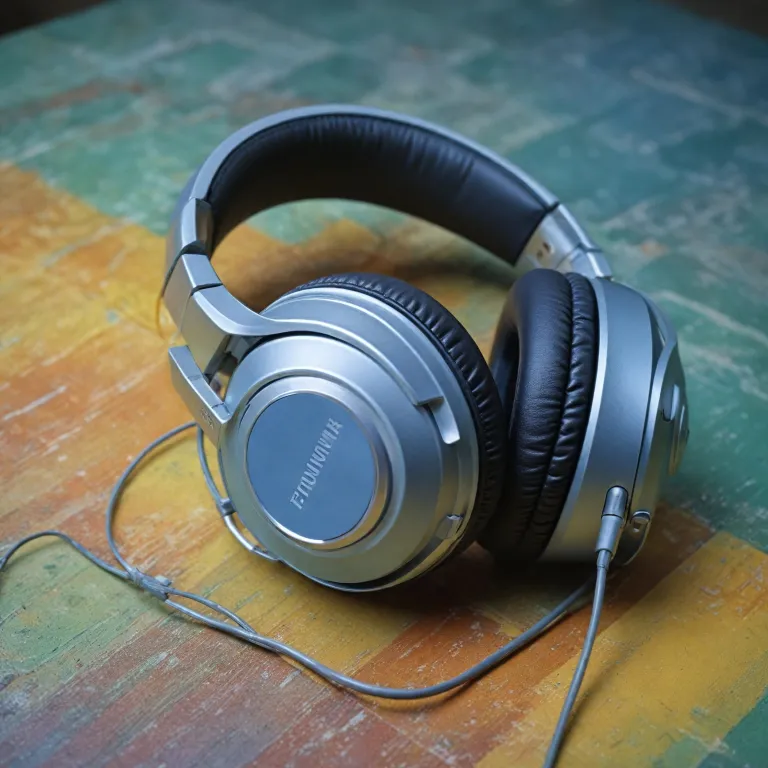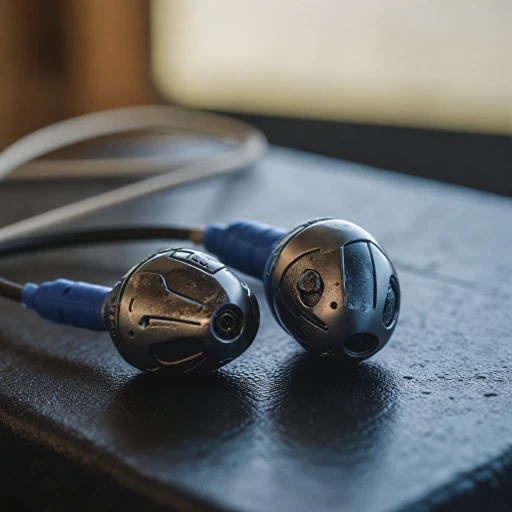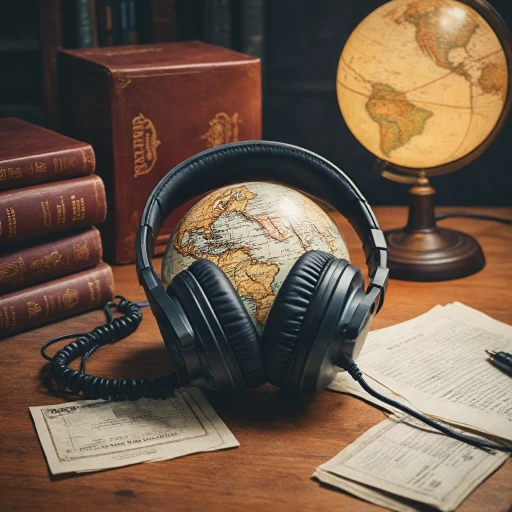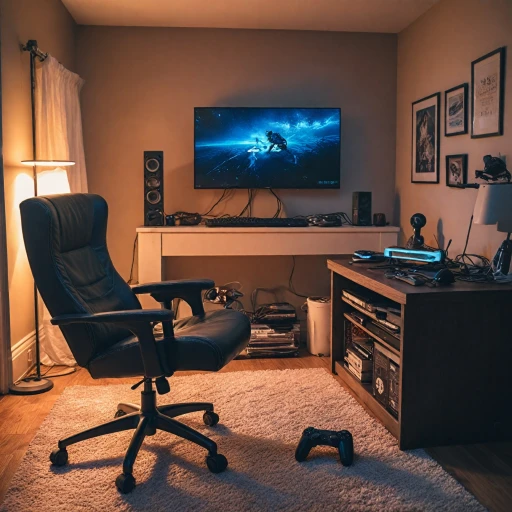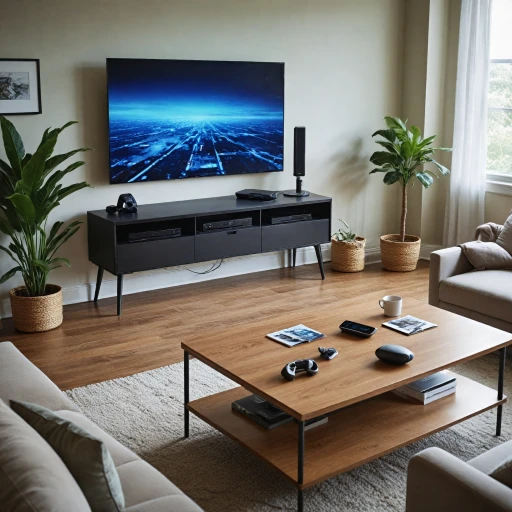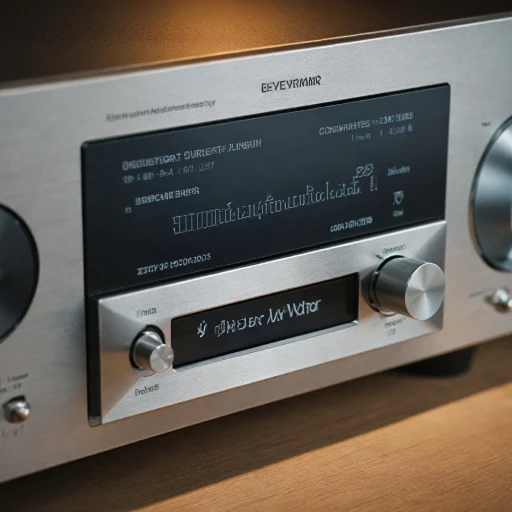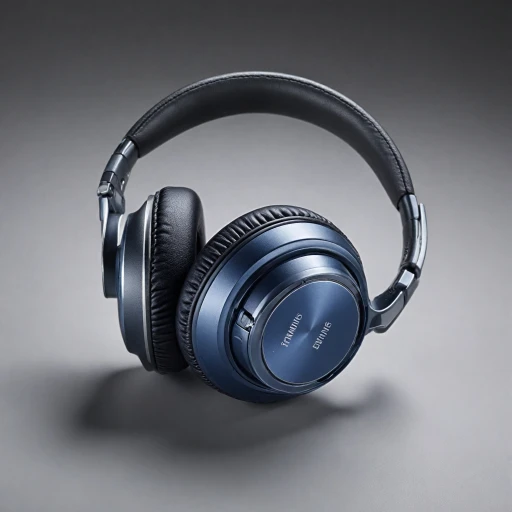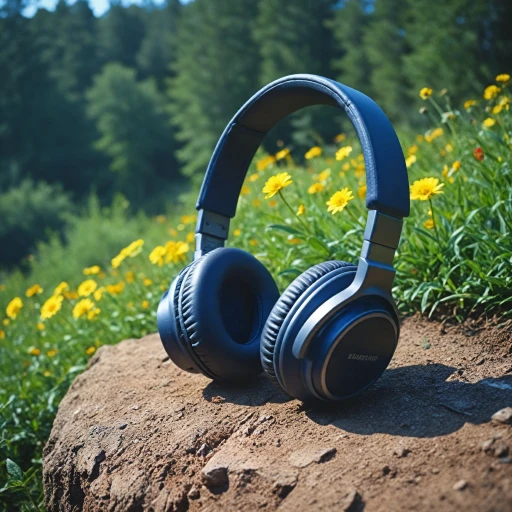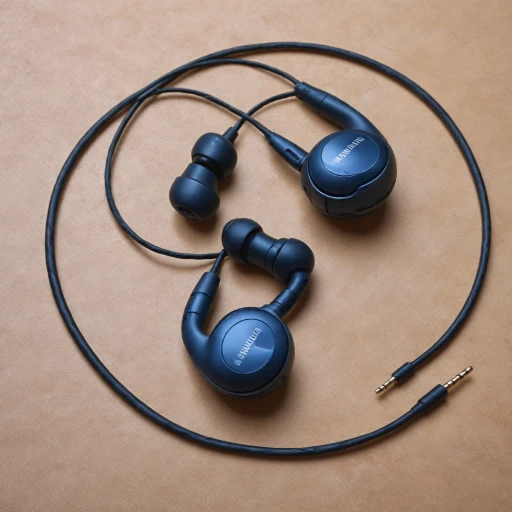
Understanding High-Resolution Audio
Decoding the Essence of High-Resolution Audio
High-resolution audio, often cherished by audiophiles, offers sound quality that surpasses the standard digital audio capabilities most of us are accustomed to. To truly appreciate this refined listening experience, it's essential to delve into the nuances of what makes high-resolution audio special. The term "high-resolution audio" refers to audio files with higher sampling rates and bit depths than CDs or standard digital audio. This results in capturing more detail and depth, which promises a more immersive and authentic sound experience. Audiophiles often seek high-quality headphones to make the most of these superior sound recordings. Options range from open headphones with a spacious sound field to the precision of closed designs for an isolated listening experience. When discussing high-res audio, one cannot ignore the role of the headphone cable and design, as both contribute to the clarity and authenticity of sound. Whether it's the best audiophile headphones from brands like Focal or Grado, the design intricacies play a significant role in delivering that impeccable sound quality. For those interested in high-res audio playback, several options include both wired headphones and wireless headphones. While wireless models offer convenience, wired headphones are often preferred for their consistent and uninterrupted sound output. The choice between open and closed designs will ultimately depend on personal preference and specific listening environments. Active noise cancelling technology often complements high-resolution headphones, allowing users to fully dive into their listening experience without distraction from external noise. Finding the best match for one's specific needs involves balancing sound detail, price, and design. To further explore the diverse range of audio headphones that highlight these attributes, you can find more detailed insights in reviews of the best high-resolution headphones. By understanding these crucial elements, you can embark on a journey of enriched sound quality and experience unparalleled audio fidelity.The Role of Noise-Canceling Technology
Decoding Noise-Canceling Technology: A Closer Look
In the realm of high-resolution audio headphones, noise-canceling technology plays a pivotal role in enhancing the listening experience. At its core, this technology aims to minimize unwanted ambient sounds, allowing audiophiles to fully immerse themselves in the music without external interruptions.
Active noise canceling (ANC) is the predominant method employed in modern headphones. It works by using microphones to pick up external sounds and then creating sound waves that are out of phase with these noises, effectively canceling them out. This results in a clearer, more focused listening experience.
- Open vs. Closed Design: The design of the headphones significantly impacts the effectiveness of noise-canceling technology. Closed headphones offer better isolation due to their sealed design, while open headphones provide a more spacious sound but are less effective at blocking external noise. It's important to consider these design elements when evaluating sound quality.
- Wired vs. Wireless: Both wired headphones with a headphone cable and wireless headphones can feature noise-canceling capabilities. However, wireless headphones often come with the added convenience of Bluetooth connectivity, making them a great choice for on-the-go use. The best audiophile headphones balance excellent sound quality with effective noise cancellation.
- Price and Quality: The price of noise-canceling headphones can vary significantly. While high-end models like the Focal Clear offer exceptional sound quality and detail, there are also more affordable options that deliver decent performance. A comprehensive review of the best offerings on the market can help you make an informed choice.
- Sound and Listening Experience: Ultimately, the goal of noise-canceling technology is to enhance your auditory experience by eliminating distractions. Whether you are listening to apple music or using a headphone amplifier, the quality of audio headphones and their design intricacies greatly influence the perceived "res audio" quality.
When choosing headphones, consider how often you will use them in noisy environments and the importance of an open design or closed features based on your personal taste. As the market continues to evolve, the mix of sound quality and innovative design options will likely lead to exciting new developments in this field. For those interested in kid-friendly options, exploring the Hamiltonbuhl Kids HA2 headphones can provide valuable insights into specialized design adaptations for different user needs. Learn more about Hamiltonbuhl models.
Benefits of High-Resolution Audio Headphones
The Advantages of Owning Audiophile-Grade Audio Devices
When discussing high-resolution sound devices, the conversation inevitably leads to the audiophile headphones that bring immersive listening experiences right to our ears. Owning audio headphones that boast high-quality sound is not just a privilege reserved for audiophiles; they offer a range of benefits that elevate how you interact with sound.- Unmatched Sound Quality: One of the primary benefits of investing in high-quality audio headphones lies in their ability to deliver superior sound quality. Whether using open or closed designs, the clarity, depth, and detail of each note get accurately reproduced. Brands like Grado and Focal are renowned for offering some of the best audiophile headphones, ensuring each listening session is a rich auditory journey.
- Immersive Listening Experience: With both wired headphones and their wireless counterparts, active noise-canceling features play a pivotal role. They allow you to focus solely on the music, filtering out external distractions, which is essential when appreciating every nuance in your favorite tracks. Featuring a well-designed headphone amplifier can further enhance the listening experience over platforms like Apple Music.
- Variety of Features: High-resolution audio headphones come with a host of flexible features. Spacious sound is often a hallmark of open headphones, providing an expansive listening range that closed designs sometimes limit. Meanwhile, some listeners appreciate the headphone cable offering different materials for those who prefer a traditional connection method for uninterrupted quality.
Challenges in Noise-Canceling Headphones
Examining the Challenges of Noise-Canceling Features
While high-resolution audio headphones significantly enhance the listening experience, integrating noise-canceling technology presents several challenges. A primary concern for audiophile headphones is maintaining the natural sound quality while implementing active noise cancelling. This technology often requires microphones and digital signal processing to reduce unwanted ambient noise, which can sometimes interfere with the audio fidelity that audiophiles crave. Additionally, the design of headphones plays a crucial role. For instance, closed headphones generally provide better isolation, enhancing the effectiveness of noise-canceling features. However, open headphones are revered for their spacious sound and natural audio experience, but they inherently allow more external sound in, which can reduce the effectiveness of noise-cancelling. Striking a balance between these aspects is crucial. Wireless headphones introduce another layer of complexity. While they offer convenience, ensuring the best sound quality through a wireless connection can be challenging. Some audiophiles still prefer wired headphones due to the perceived superior audio quality of a headphone cable. Brands like Focal and Grado are reputed for their high-quality wired offerings, which many still consider among the best audiophile headphones. Moreover, price variations can be significant. High-quality noise-canceling features generally come at a premium, and the decision to invest in such technology depends largely on individual needs and preferences. Audiophiles looking for specific sound quality may read reviews and consider factors like the design, whether open or closed, and whether wireless capability is essential. In conclusion, navigating these challenges can be daunting but essential for finding the right audio headphones that meet one's expectations and offer a great listening experience. Opting for the best audiophile headphones will invariably depend on how these challenges are addressed by manufacturers and what compromises, if any, you are willing to make.Choosing the Right Headphones for You
Finding the Perfect Pair: What to Consider
Choosing the right headphones involves more than just picking a pair with the best sound quality or the latest design. It's about understanding the different features and how they align with your specific needs. Here are some key aspects to consider:
- Sound Quality and Design: Audiophiles often crave a perfect balance of sound clarity and spacious sound. Open headphones, such as those with an open design, provide an airy and natural listening experience, while closed headphones offer more focused sound isolation.
- Wired vs. Wireless: While wired headphones ensure high quality sound with minimal interference, wireless headphones offer more freedom of movement. Consider whether the best audiophile headphones for you come with a headphone cable or not.
- Noise Cancelling Capabilities: If reducing ambient noise is a priority, active noise cancelling technology will be essential. This feature can significantly enhance your listening experience, allowing you to fully immerse in audio headphones without distractions.
- Price and Brand Considerations: Grado and Focal offer some of the best audiophile options available on the market today. Their high-resolution audio headphones, such as the focal clear, are renowned for detail and quality. However, deciding how much you're willing to spend is important; high-end models come with premium prices.
- Additional Features: For those using platforms like Apple Music, headphones with excellent sound compatibility may improve your listening experience. Consider whether you need a headphone amplifier or not to enhance the sound quality further.
By taking into account these factors, you’ll be better equipped to find headphones that not only meet your expectations but also elevate your overall audio experience.

